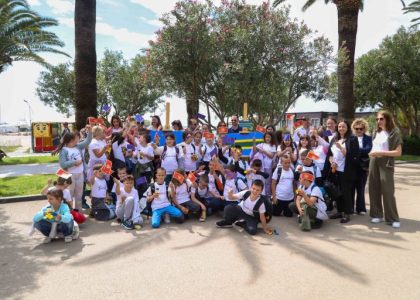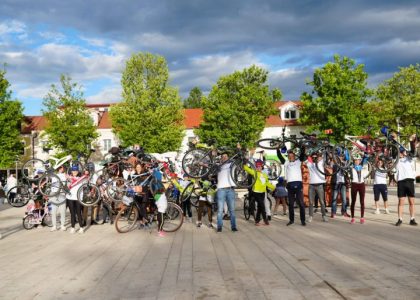The European Union donated the first contingent of protective medical equipment in the fight against the coronavirus to Montenegro in 2021. Today, the aid arrived in the form of 78,000 FFP2 protective masks and 15,000 disposable surgical coats, which the EU donated to Montenegro from a special rescEU reserve of the Union Civil Protection Mechanism. The total value of the donation is €311,850, while the coordination and distribution was provided by the Federal Office for Civil Protection and Disaster Relief of the Federal Republic of Germany, through the German Red Cross. The donation is intended for medical workers at the Clinical Centre of Montenegro.
On the occasion of the donation, the Minister of the Interior Sergej Sekulović expressed his gratitude and said that this assistance confirmed that Montenegro has friends at the most important European addresses and that humanity and solidarity connect us in the fight against COVID-19, which are recognisable values of our cooperation.
“This will be valuable help for the employees of the Clinical Centre of Montenegro, who have been fighting hard and tirelessly for months with a dangerous opponent, showing dedication and professionalism as a recognisable form of their work,” Sekulović pointed out.
The director of the Clinical Centre of Montenegro, Dr. Ljiljana Radulović, thanked the EU for the donation and the Ministry of the Interior for recognising the need to help the largest hospital with this aid.
“Employees of the Clinical Centre of Montenegro fight day and night, very responsibly, and tirelessly for the health of each of our patients and provide their professional maximum, regardless of the duration of the pandemic and the challenges that are found along the way,” Radulović emphasised.
On 19 March, the European Commission created a strategic rescEU capacity – a common European reserve – of emergency medical equipment, such as ventilators, protective masks, gloves, and laboratory supplies to help EU countries face the coronavirus pandemic. The Commission finances 100% of the capacity (including the procurement, maintenance, and the delivery costs), which is hosted by several Member States and is constantly replenished. The hosting States are responsible for procuring the equipment with the support of the Commission. The Emergency Response Coordination Centre manages the distribution of the equipment to ensure it goes where it is most needed.


